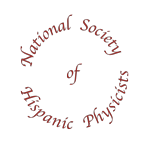
California Institute of Technology/LIGO
Gravitational-Wave Experimental Physicist
Job Category:
Fulltime Regular
Exempt Overtime Eligible:
Exempt
Benefits Eligible: Benefit Based
Caltech is a world-renowned science and engineering institute that marshals some of the world’s brightest minds and most innovative tools to address fundamental scientific questions. We thrive on finding and cultivating talented people who are passionate about what they do. Join us and be a part of the diverse Caltech community.
LIGO Laboratory (the Laser Interferometer Gravitational-wave Observatory) seeks a highly motivated and skilled Gravitational Wave Experimental Physicist to join its team.
This position is an in-person role located in Richland, WA.
LIGO Laboratory is a National Science Foundation major facility dedicated to observing the newly discovered gravitational-wave universe. Jointly operated by the California Institute of Technology and Massachusetts Institute of Technology, the LIGO Laboratory operates world-leading observatories near Richland, WA, and Baton Rouge, LA as well as R&D centers on the Caltech and MIT campuses. The LIGO Laboratory’s mission spans a broad and vibrant array of activities related to gravitational-wave physics and astronomy, including detector operations, R&D toward detector improvements, gravitational-wave astrophysics, observatory operations, education, and public outreach.
For more information, please visit the Laboratory website at https://www.ligo.caltech.edu/
Job Summary
LIGO Hanford Observatory (LHO) relies on continuous efforts by science and operations teams to characterize and improve i) the 4-km interferometer displacement sensitivity, and ii) improve uptime of the interferometer.
Both of these enterprises increase the rate of detection of gravitational wave events recorded by the network of detectors that include LIGO, Virgo, and KAGRA interferometers. The successful candidate will collaborate with commissioning scientists and the Operations team at LIGO Hanford Observatory, as well as colleagues at LIGO Livingston Observatory, Caltech, and MIT.
As an LHO Scientist, you will have the opportunity to apply your skills to the design, development, implementation, and commissioning of technologies that increase the Advanced LIGO detector sensitivity and robustness.
This is a highly multidisciplinary activity. Your interests and passions will play a role in defining on which research aspect you will focus primarily: design and implement technologies and algorithms (including feedback control design and implementation) to reduce the noise sources that limit the current detector sensitivity; model optical subsystems of the interferometer and compare to data; calibrate the interferometer length sensitivity; investigate and eliminate noise couplings from the external environment of the detector; carry out R&D projects for future gravitational wave detectors, are among the many topics that are involved in the duties of a LIGO Hanford Observatory Scientist.
You will have the opportunity to apply your knowledge to many different parts and aspects of the Advanced LIGO detectors, and there will be many opportunities to develop new skills and expertise.
Essential Job Duties
• Improve the detector’s sensing and control systems that govern optical cavity lengths and angles, including both servo-control stability and noise performance.
• Identify and minimize coupling of environmental disturbances into detector systems.
• Develop techniques and algorithms to characterize and remove noise sources.
• Study noise couplings, high-power operations, and thermal compensation via interferometer modeling.
• Aid in the calibration of the length sensitivity of the interferometer.
• Initiate or collaborate in writing research papers and technical presentations.
• Present research results and highlights at national and international conferences.
• After-hours and weekend work is occasionally required to support commissioning efforts. This position requires occasional travel to other LIGO installations and collaborating institutions in Livingston, Louisiana, Pasadena, California, Cambridge, Massachusetts, and possibly internationally.
• Other duties as assigned.
Basic Qualifications
• A Ph.D. degree in Physics, Engineering, Optics, or related field. In lieu of a Ph.D we will consider 6 years of relevant experience.
• A minimum of 2 years of experience, post-education (i.e., post-Ph.D. or post-6 years of experience), in working with interferometers/optical systems, and/or scientific data analysis, and/or feedback control systems, and/or signal processing.
• Experience working in a multi-disciplinary research environment.
• Possess good verbal and written communication skills, a team attitude, and a high degree of professional discipline.
Preferred Qualifications
• Proficiency with scientific computation, simulation and data analysis in python or similar language.
• Experience with simulation software of optical and mechanical systems
• Experience with the design or operation of interferometric gravitational-wave detectors.
• Familiarity with good practice in mentoring students and/or staff.
• Experience with precision electronic circuit design and/or characterization; with precision electro-mechanical system design and/or characterization; and with precision optical system design and/or characterization.
Required Documents
• A cover letter summarizing your relevant experience and your interest in working at LIGO Lab.
• Resume
To be considered for this position please visit our web site and apply on line at the following link: https://apptrkr.com/5850261
We are an equal opportunity employer and all qualified applicants will receive consideration for employment without regard to race, color, religion, sex, national origin, disability status, protected veteran status, or any other characteristic protected by law.
